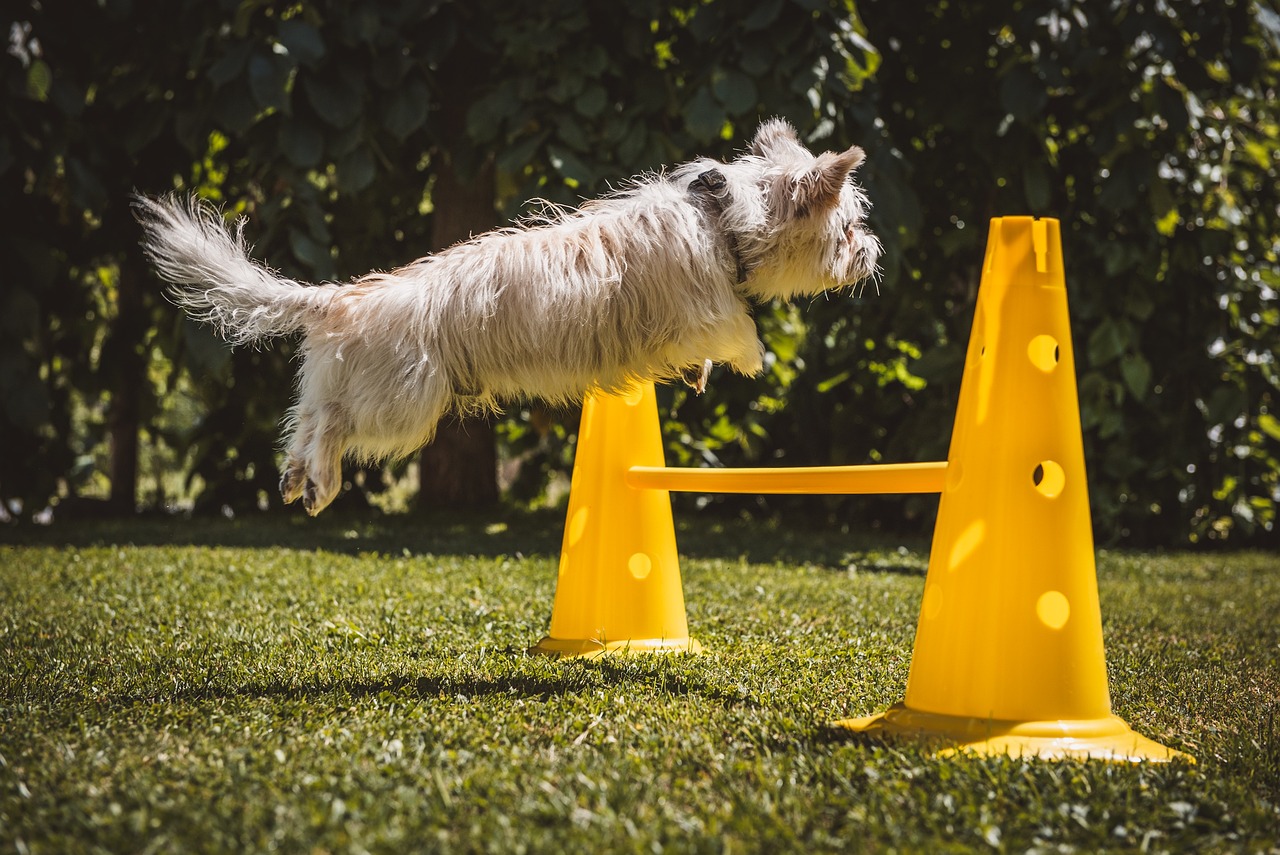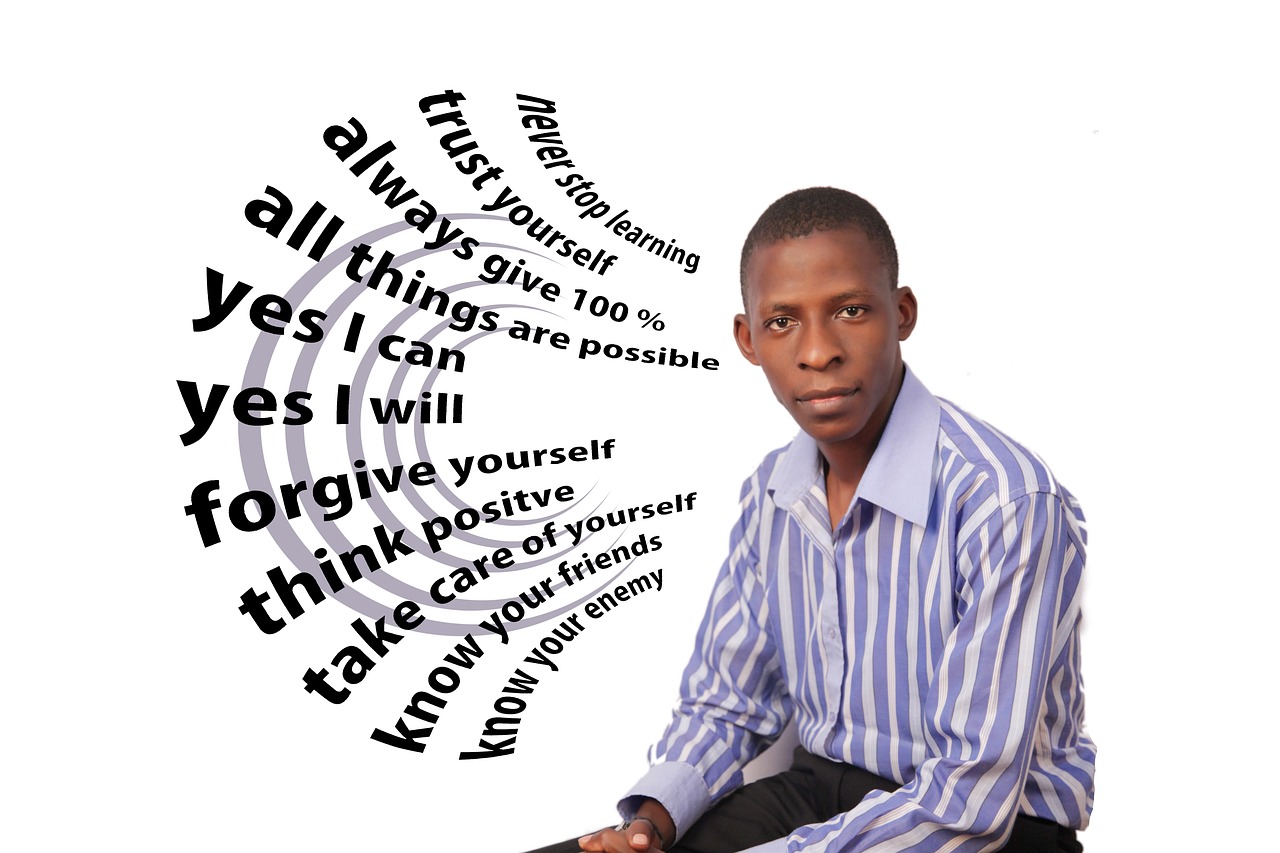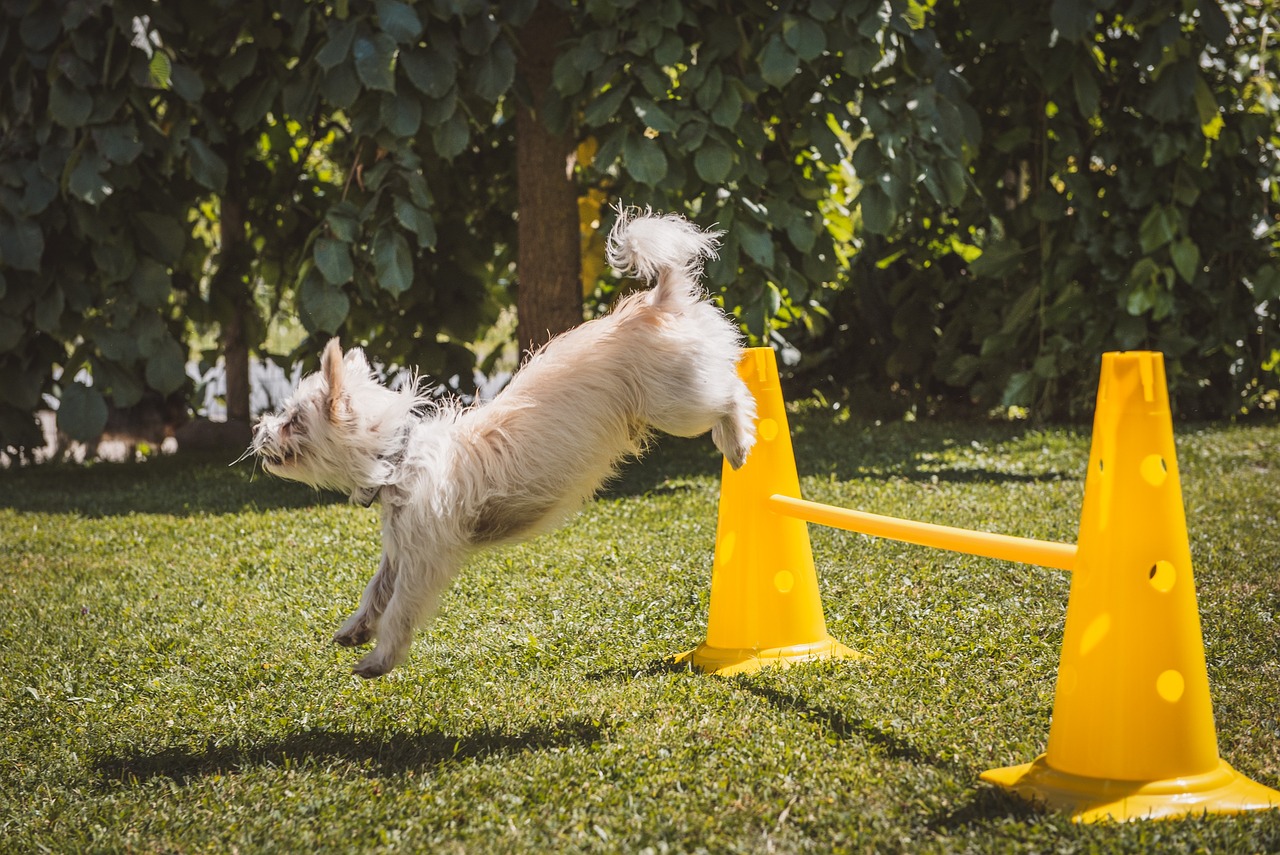Impacts of Self Defense Training on Your Physical Health
Self-defense training is not just about learning how to protect yourself; it's a holistic approach to enhancing your overall well-being. Imagine stepping into a dojo, where each punch and kick not only hones your skills but also transforms your body and mind. The impacts of self-defense training on physical health are profound, ranging from improved fitness levels to enhanced mental well-being. This article delves into the multifaceted benefits of self-defense training, illustrating how it can serve as a catalyst for a healthier, more empowered you.
One of the most significant benefits of self-defense training is the remarkable improvement in physical fitness. Think of it as a dynamic workout disguised as a self-protection class. Engaging in regular self-defense practice can lead to substantial enhancements in cardiovascular health, strength, and flexibility. As you throw punches and execute kicks, your heart rate increases, promoting better circulation and endurance. Studies have shown that participants in self-defense classes often experience noticeable improvements in their overall fitness levels within just a few weeks.
Moreover, self-defense training is a full-body workout. It incorporates various movements that engage multiple muscle groups, enhancing strength and coordination. Whether you're practicing a roundhouse kick or learning to maneuver out of a hold, you're building muscle tone and improving your agility. Flexibility also sees a boost, as many techniques require stretching and dynamic movements. The result? A fitter, more agile body ready to take on any challenge.
Beyond the physical benefits, self-defense training plays a crucial role in enhancing mental health. In today's fast-paced world, stress and anxiety can feel like constant companions. However, participating in self-defense training can help alleviate these burdens. The sense of accomplishment that comes from mastering a new technique or successfully completing a class fosters a sense of pride and boosts self-confidence. This newfound confidence spills over into other areas of life, empowering individuals to tackle challenges head-on.
Training sessions often incorporate various breathing and relaxation techniques, which are essential for managing stress effectively. These methods teach participants how to cultivate a calm mindset, even in the face of adversity. By focusing on controlled breathing and mindfulness, individuals can learn to respond to stressors with a clear mind rather than reacting impulsively. This practice not only enhances performance during training but also equips individuals with tools to handle everyday stressors more effectively.
Self-defense training encourages mindfulness, allowing individuals to focus on the present moment. This focus is akin to meditation in motion, where each movement becomes a way to clear the mind and enhance mental clarity. As participants immerse themselves in the techniques, they learn to regulate their emotions better, leading to improved emotional resilience. Mindfulness practiced in this setting can translate into everyday life, helping individuals manage anxiety and stress more effectively.
As individuals master self-defense techniques, their self-esteem receives a significant boost. Each small victory, whether it's perfecting a technique or successfully sparring with a partner, contributes to a more positive self-image. This newfound confidence fosters resilience, making individuals better equipped to face challenges in their everyday lives. It's like building a mental fortress; the more skills you acquire, the stronger and more capable you feel.
Self-defense classes often involve group training, which promotes social interaction and fosters friendships. Engaging with fellow participants creates a sense of community, providing emotional support and camaraderie. This social aspect can further enhance emotional well-being, as individuals share experiences, challenges, and victories together. The bonds formed in these classes can lead to lasting friendships, making the journey of self-improvement even more enjoyable.
Learning self-defense equips individuals with essential skills for personal safety. It's not just about the physical techniques; it's about empowering yourself to handle potentially dangerous situations with confidence and awareness. Imagine walking down the street, feeling secure in your ability to protect yourself if needed. This sense of preparedness is invaluable.
Training emphasizes the importance of being aware of one's surroundings. This heightened situational awareness is crucial for avoiding confrontations and ensuring safety. Participants learn to recognize potential threats and assess their environment, which can significantly reduce the likelihood of dangerous encounters. It's like having a sixth sense; the more you train, the more attuned you become to your surroundings.
Throughout self-defense training, participants learn various techniques to defend themselves. These skills not only enhance physical abilities but also instill a sense of preparedness and empowerment. Knowing that you can defend yourself if necessary creates a profound sense of security. It's akin to carrying an invisible shield; while you hope never to use it, the mere knowledge that it exists can be incredibly reassuring.
- What are the physical benefits of self-defense training?
Self-defense training improves cardiovascular health, strength, flexibility, and overall fitness levels. - How does self-defense training affect mental well-being?
It reduces stress and anxiety, promotes self-confidence, and encourages mindfulness. - Can self-defense training help with social interaction?
Yes, training often involves group activities that foster friendships and community. - What practical skills do I gain from self-defense training?
You learn situational awareness and effective techniques for personal safety.

Improved Physical Fitness
This article explores the various ways self-defense training enhances physical health, including fitness improvements, mental well-being, and practical skills for personal safety.
When it comes to getting fit, self-defense training is like finding a hidden gem in the world of fitness. It’s not just about learning how to throw a punch or escape a hold; it’s a comprehensive workout that targets multiple aspects of physical health. Think of it as a fun and engaging way to improve your cardiovascular health, strength, and flexibility all at once! Imagine being in a class where you’re not just sweating it out but also feeling empowered with every move you make.
One of the most remarkable benefits of self-defense training is the boost it gives to your cardiovascular system. As you engage in various drills and techniques, your heart rate increases, helping to improve your overall heart health. Studies have shown that regular cardiovascular exercise can lead to a decrease in the risk of heart disease, lower blood pressure, and improved circulation. So, while you’re learning how to defend yourself, you’re also giving your heart a workout it will thank you for!
Moreover, self-defense training is a fantastic way to build strength. Each technique you practice requires the use of different muscle groups, leading to a well-rounded strength-building experience. Whether you’re executing a powerful kick or engaging in grappling techniques, you’ll find that your muscles are constantly being challenged. Over time, this not only enhances muscle tone but also increases your overall body strength, making everyday tasks feel easier.
Flexibility is another area where self-defense training shines. Many techniques require a good range of motion, and as you practice, you’ll notice your body becoming more limber. This increased flexibility can help prevent injuries in other physical activities and improve your overall agility. It's like stretching on steroids—you're not just bending and reaching; you're doing it with purpose and intent.
To put it simply, self-defense training is not just a self-improvement journey; it’s a holistic approach to getting fit. Here’s a quick breakdown of how self-defense training impacts physical fitness:
| Fitness Aspect | Benefits |
|---|---|
| Cardiovascular Health | Improves heart health, lowers blood pressure, enhances circulation |
| Strength | Builds muscle tone and overall body strength |
| Flexibility | Increases range of motion, prevents injuries, improves agility |
In addition to these physical benefits, self-defense training is incredibly versatile. It can be adapted to suit various fitness levels, making it accessible for everyone—from beginners to seasoned athletes. Whether you’re a young adult looking to get fit or an older individual wanting to maintain your health, self-defense training can meet you where you are. It’s like having a personal trainer who not only guides you through workouts but also equips you with life-saving skills!
So, if you’re on the fence about joining a self-defense class, think about the incredible physical benefits you could gain. You’ll not only learn how to protect yourself but also embark on a journey toward improved health and fitness. And who wouldn’t want to feel stronger, more flexible, and healthier while having a blast in the process?
Participating in self-defense training contributes to better mental health by reducing stress and anxiety, promoting a sense of accomplishment, and boosting self-confidence.
Training often incorporates breathing and relaxation techniques, which help participants manage stress effectively and cultivate a calm mindset.
Practicing self-defense encourages mindfulness, allowing individuals to focus on the present moment, thus improving mental clarity and emotional regulation.
As individuals master self-defense techniques, their self-esteem increases, fostering a more positive self-image and greater resilience in everyday life.
Self-defense classes often involve group training, promoting social interaction and fostering friendships, which can further enhance emotional well-being.
Learning self-defense equips individuals with essential skills for personal safety, empowering them to handle potentially dangerous situations with confidence and awareness.
Training emphasizes the importance of being aware of one's surroundings, which is crucial for avoiding confrontations and ensuring safety.
Participants learn various techniques to defend themselves, which not only enhances physical skills but also instills a sense of preparedness and empowerment.
Q: Do I need to be fit to start self-defense training?
A: Absolutely not! Self-defense classes cater to all fitness levels. You’ll improve your fitness as you learn.
Q: How often should I train to see results?
A: Regular practice—ideally 2-3 times a week—will yield the best results in both fitness and skill development.
Q: Is self-defense training safe?
A: Yes! Classes are designed to be safe and supportive, with instructors focusing on proper techniques and safety precautions.

Enhanced Mental Well-being
Participating in self-defense training goes far beyond just physical fitness; it significantly contributes to improved mental health. Imagine stepping into a dojo or training hall where the air is filled with energy and determination. Each session is not just about learning how to throw a punch or execute a kick; it's about building a resilient mindset that can tackle life's challenges head-on. Through regular practice, individuals often experience a profound reduction in stress and anxiety levels. This is not merely anecdotal; studies have shown that engaging in physical activity releases endorphins, the body's natural mood lifters, which can create a sense of euphoria and relaxation.
Moreover, self-defense training promotes a sense of accomplishment. Each technique mastered, every sparring session completed, and every goal achieved contributes to a growing sense of self-worth. This journey of self-improvement can be likened to climbing a mountain—each step taken is a victory, and reaching the summit brings an overwhelming sense of achievement. As you progress, your self-confidence blossoms, allowing you to face daily challenges with a newfound vigor.
Many self-defense classes incorporate breathing and relaxation techniques, which are invaluable for managing stress effectively. These methods teach participants how to center themselves, redirect their focus, and cultivate a calm mindset, especially during high-pressure situations. By learning to control their breath, individuals can lower their heart rates and reduce feelings of anxiety, making them feel more grounded and in control. This practice can be incredibly beneficial not only in self-defense scenarios but also in everyday life. Imagine being able to navigate a stressful work environment or a busy family life with the same calmness you adopt during training.
Self-defense training encourages mindfulness, which is the practice of being fully present in the moment. This focus can lead to improved mental clarity and emotional regulation. When you're engaged in training, your mind is concentrated on the techniques, your body movements, and your surroundings. This heightened awareness helps to drown out distractions and negative thoughts, allowing for a clearer perspective on various life situations. In essence, self-defense becomes a form of meditation in motion, where the mind and body work in harmony.
As individuals master self-defense techniques, their self-esteem naturally increases. This growth fosters a more positive self-image, allowing them to approach challenges with greater resilience. It's fascinating how the act of learning to defend oneself can transform an individual's outlook on life. The empowerment gained through these skills transcends the training environment and spills over into everyday interactions. You may find yourself walking a little taller, speaking a little louder, and engaging more fully with the world around you. This newfound confidence can help in various aspects of life, from personal relationships to professional endeavors.
Self-defense classes often involve group training, which promotes social interaction and fosters friendships. The camaraderie built during these sessions can significantly enhance emotional well-being. Engaging with peers who share similar goals creates a supportive network, making the training experience more enjoyable and less isolating. This social aspect can be particularly beneficial for individuals who may struggle with feelings of loneliness or anxiety. The shared challenges and victories in training help forge lasting bonds, making the journey toward self-improvement a shared adventure.
- What types of self-defense training are available? There are various forms of self-defense training, including Krav Maga, Brazilian Jiu-Jitsu, Muay Thai, and traditional martial arts like Karate and Taekwondo.
- How often should I train to see mental health benefits? Regular practice, ideally 2-3 times a week, can help you experience significant mental health improvements over time.
- Can self-defense training help with anxiety? Yes, many individuals find that the physical activity and focus required in self-defense training help reduce anxiety and promote relaxation.
- Is self-defense training suitable for all ages? Absolutely! Many self-defense programs cater to a wide range of ages and fitness levels, making it accessible for everyone.

Stress Reduction Techniques
In today's fast-paced world, stress seems to be an unavoidable part of life. However, engaging in self-defense training offers a unique avenue for managing and reducing stress effectively. One of the key aspects of self-defense training is the incorporation of breathing and relaxation techniques. These methods not only help participants to stay calm during training but also equip them with tools to handle everyday stressors. Imagine being in a high-pressure situation, and instead of panicking, you take a deep breath and center yourself. This ability can be a game-changer!
Moreover, self-defense classes often involve physical activity that releases endorphins—those magical chemicals in your brain that act as natural painkillers and mood elevators. When you engage in rigorous training, you’re not just learning how to defend yourself, but you’re also giving your body a natural boost that enhances your overall mood. It’s like hitting two birds with one stone: you get fit and you feel great!
Another vital element of stress reduction in self-defense training is the emphasis on mindfulness. Being present in the moment can significantly improve your mental clarity and emotional regulation. During training, you focus on your movements, your breathing, and your surroundings. This practice of mindfulness can spill over into your daily life, helping you to manage stress more effectively. You might find yourself more relaxed and less reactive to the challenges that life throws your way.
Additionally, the camaraderie built within self-defense classes can further alleviate stress. Training often takes place in a group setting where participants encourage and support each other. This social interaction fosters a sense of community and belonging, which is crucial for emotional well-being. Think about it: having a group of friends who share similar interests and challenges can make facing the world a lot less daunting.
In summary, self-defense training is not just about learning to protect yourself physically. It’s a holistic approach to enhancing your mental health through stress reduction techniques. By incorporating mindfulness, breathing exercises, and social interaction, you empower yourself to handle stress more effectively and cultivate a calmer mindset. So, why not give it a try? You might just discover a new way to find peace in the chaos of life!
- What are the benefits of self-defense training? Self-defense training enhances physical fitness, mental well-being, and provides practical skills for personal safety.
- Can self-defense training help reduce stress? Yes, it incorporates techniques that promote relaxation and mindfulness, which are effective for stress management.
- Is self-defense training suitable for everyone? Absolutely! People of all ages and fitness levels can benefit from self-defense training.
- How often should I attend self-defense classes? Regular attendance, such as once or twice a week, can lead to noticeable improvements in skills and fitness.

Mindfulness in Training
When you step onto the mat for self-defense training, you're not just preparing your body for physical challenges; you're also embarking on a journey of mindfulness. This practice is all about being present in the moment, and it can significantly enhance your training experience. Imagine this: you're in a room full of people, the energy is high, and as you start to learn new techniques, you find yourself completely absorbed in the process. This state of focus is what mindfulness is all about—it’s like tuning into a radio station that plays only the sounds of your body moving, your breath flowing, and your mind sharpening.
Mindfulness in training encourages you to let go of distractions and immerse yourself in each movement. This heightened awareness not only improves your technique but also fosters a deeper connection between your body and mind. You begin to notice how your muscles engage, how your breath changes with each action, and how your thoughts shift as you learn to respond to various scenarios. This connection can be incredibly empowering, transforming each training session into a meditative practice that enhances both physical and mental agility.
Moreover, mindfulness helps in emotional regulation. In the heat of a sparring match or while learning a new move, it’s easy to feel overwhelmed or frustrated. However, by practicing mindfulness, you can learn to acknowledge these feelings without letting them take control. For instance, if you find yourself struggling with a technique, instead of succumbing to frustration, you can take a moment to breathe deeply and refocus your mind. This practice not only enhances your performance but also prepares you for real-life situations where maintaining composure is crucial.
Here are some key aspects of how mindfulness is integrated into self-defense training:
- Breathing Techniques: Instructors often incorporate breathing exercises that help participants center themselves. This not only calms the mind but also improves oxygen flow to the muscles, enhancing performance.
- Visualization: Many self-defense practitioners use visualization techniques to mentally prepare for various scenarios. This mental rehearsal can boost confidence and readiness.
- Present Moment Awareness: By focusing on the present moment, practitioners can improve their reaction times and decision-making skills, which are vital in self-defense situations.
In essence, mindfulness in self-defense training is about cultivating a state of awareness that transcends the physical. It’s about understanding that every punch, kick, or block is not just a technique but a dance that requires full presence and intention. As you continue to practice, you'll find that this mindfulness extends beyond the training mat, influencing your everyday life. You'll start to approach challenges with a calm and collected mindset, making you not just a better martial artist but a more centered individual.
- What is mindfulness in self-defense training?
Mindfulness in self-defense training refers to the practice of being fully present and engaged during training sessions, which enhances focus, technique, and emotional regulation. - How can mindfulness improve my self-defense skills?
By cultivating awareness and focus, mindfulness can improve your reaction times and decision-making abilities, making you more effective in self-defense situations. - Can mindfulness techniques be used outside of training?
Absolutely! The mindfulness skills you develop during training can be applied to various aspects of life, helping you manage stress and improve overall well-being.

Building Confidence
Building confidence is one of the most profound benefits of engaging in self-defense training. Imagine stepping onto the mat, feeling a mix of excitement and a touch of anxiety. As you learn and practice various techniques, something incredible happens: you begin to realize your own strength and capabilities. This realization is akin to discovering a hidden treasure within yourself, and it can be life-changing.
When you first start, you might feel unsure about your ability to defend yourself. However, as you progress, you start mastering techniques that seemed daunting at first. Each small victory, whether it's successfully executing a move or sparring with a partner, adds to your confidence. It's like climbing a mountain; with every step, you get closer to the summit, and the view becomes more exhilarating. This sense of achievement not only boosts your self-esteem but also encourages you to tackle challenges in other areas of your life.
Moreover, the supportive environment of self-defense classes plays a crucial role in fostering confidence. You’re surrounded by instructors and fellow participants who cheer you on, creating a community where everyone is rooting for each other. This camaraderie can be incredibly uplifting. Think of it as being part of a team where everyone shares the same goal: to improve and empower one another. As you bond with others, you also learn to trust your instincts and judgment, which further enhances your confidence.
Additionally, self-defense training helps you develop a positive self-image. As you become more skilled, you start to see yourself as someone who can handle difficult situations. This shift in perception can ripple through your daily life, making you more assertive in social interactions and more resilient in the face of adversity. It's like putting on a new pair of glasses that allows you to see the world—and yourself—in a clearer, more empowered light.
Ultimately, the confidence gained from self-defense training extends beyond the dojo or gym. It seeps into your everyday life, influencing how you carry yourself, how you interact with others, and how you approach challenges. You start to walk a little taller, speak a little louder, and engage with the world more fully. This newfound confidence can be a powerful tool, helping you navigate through life with a sense of assurance and purpose.
- How long does it take to build confidence through self-defense training?
Confidence levels can vary, but many individuals notice improvements within a few weeks of consistent training. - Is self-defense training suitable for everyone?
Yes! Self-defense training is designed for individuals of all ages and fitness levels, making it accessible to everyone. - Can self-defense training help with anxiety?
Absolutely! Many participants find that the physical activity and focus required in training help reduce anxiety and promote relaxation. - What should I wear to self-defense classes?
Comfortable athletic wear and supportive footwear are recommended to allow for ease of movement during training.

Social Interaction Benefits
This article explores the various ways self-defense training enhances physical health, including fitness improvements, mental well-being, and practical skills for personal safety.
Self-defense training significantly boosts cardiovascular health, strength, and flexibility. Engaging in regular practice can lead to noticeable improvements in overall fitness levels.
Participating in self-defense training contributes to better mental health by reducing stress and anxiety, promoting a sense of accomplishment, and boosting self-confidence.
Training often incorporates breathing and relaxation techniques, which help participants manage stress effectively and cultivate a calm mindset.
Practicing self-defense encourages mindfulness, allowing individuals to focus on the present moment, thus improving mental clarity and emotional regulation.
As individuals master self-defense techniques, their self-esteem increases, fostering a more positive self-image and greater resilience in everyday life.
Engaging in self-defense training is not just about learning how to protect yourself; it's also a fantastic opportunity to meet new people and build lasting relationships. When you step into a dojo or training facility, you’re likely to find a diverse group of individuals, all with a shared goal: to learn how to defend themselves. This common interest creates an instant bond, making it easier to strike up conversations and form friendships. Imagine walking into a room filled with like-minded individuals, each one eager to learn and grow together. The camaraderie that develops during these training sessions can be incredibly fulfilling.
Moreover, the social aspect of self-defense training can significantly enhance your emotional well-being. Regularly attending classes fosters a sense of community. You’re not just a solitary learner; you’re part of a team. This collective experience can lead to a support network that extends beyond the training mat. Participants often share personal stories, tips, and encouragement, which can create a nurturing environment. This interaction not only makes the training more enjoyable but also helps in reducing feelings of isolation or anxiety.
In addition, self-defense classes often involve partner drills and group exercises. These activities require communication and cooperation, further enhancing social skills. You learn to trust others and work as a team, which is a valuable life skill. The bonds you create in these classes can lead to friendships that last long after the training ends. Whether it’s grabbing a coffee after class or joining a group for a workout, the social connections made during self-defense training can enrich your life in numerous ways.
Learning self-defense equips individuals with essential skills for personal safety, empowering them to handle potentially dangerous situations with confidence and awareness.
Training emphasizes the importance of being aware of one's surroundings, which is crucial for avoiding confrontations and ensuring safety.
Participants learn various techniques to defend themselves, which not only enhances physical skills but also instills a sense of preparedness and empowerment.
- What are the physical benefits of self-defense training?
Self-defense training improves cardiovascular health, strength, flexibility, and overall fitness levels.
- Can self-defense training help with mental health?
Yes, it reduces stress and anxiety, boosts self-confidence, and promotes a sense of accomplishment.
- Is self-defense training a social activity?
Absolutely! It fosters friendships and community through shared experiences and teamwork.
- What skills will I learn in self-defense training?
You will learn essential self-defense techniques, situational awareness, and stress management skills.

Practical Self-Defense Skills
Learning self-defense is not just about throwing punches or executing fancy moves; it’s about equipping yourself with essential skills that can make a real difference in your life. Imagine walking down the street with a newfound sense of confidence, knowing you have the tools to protect yourself if the need arises. Self-defense training empowers you to handle potentially dangerous situations with confidence and awareness, transforming you into a more alert and resilient individual.
One of the most significant aspects of self-defense training is the emphasis on situational awareness. This means being conscious of your environment and recognizing potential threats before they escalate. It’s like having a sixth sense; you start to notice things that you might have overlooked before. For instance, you may become more attuned to the people around you, the layout of your surroundings, and any unusual behavior. This heightened awareness is crucial for avoiding confrontations altogether, allowing you to navigate through life with a safety net of vigilance.
Moreover, self-defense classes teach a variety of effective techniques that are not only practical but also easy to remember and execute in stressful situations. These techniques range from simple defensive maneuvers to more complex strategies that can be adapted to various scenarios. For example, you might learn how to escape from a wrist grab or how to effectively block an incoming strike. Each technique is designed to empower you, instilling a sense of preparedness that can be incredibly valuable in real-life situations.
In addition to physical techniques, self-defense training often incorporates elements of mental preparation. This aspect is just as important as the physical skills you acquire. Being mentally prepared means knowing how to react under pressure, staying calm, and making quick decisions. It’s like training your brain to be your ally in times of danger. You learn to assess situations quickly and determine the best course of action, whether it’s to escape, de-escalate, or defend yourself. This mental agility can translate into other areas of your life, enhancing your problem-solving skills and decision-making abilities.
Furthermore, self-defense training fosters a sense of community. Many classes involve group training, which not only makes learning more enjoyable but also allows for social interaction and the building of friendships. Engaging with others who share similar interests creates a supportive environment where you can learn and grow together. This camaraderie can further enhance your emotional well-being, making you feel more connected and less isolated in your journey toward personal safety.
In conclusion, the practical self-defense skills you gain from training extend far beyond physical techniques. They encompass mental preparedness, situational awareness, and social interaction, all of which contribute to a well-rounded approach to personal safety. So, if you’re considering taking up self-defense classes, know that you’re not just learning how to defend yourself; you’re embarking on a journey that can significantly improve your overall quality of life.
- What age is appropriate to start self-defense training? Most self-defense classes welcome participants of all ages, from children to adults. It's essential to find a class that suits your age and fitness level.
- Do I need to be physically fit to start self-defense training? No, self-defense training is designed for individuals of all fitness levels. The classes will help you improve your fitness as you learn.
- How long does it take to learn effective self-defense techniques? The time it takes to learn self-defense varies by individual, but many people start to feel confident with basic techniques after just a few weeks of consistent training.
- Is self-defense training only for women? Absolutely not! Self-defense training is beneficial for everyone, regardless of gender. It empowers you to protect yourself in any situation.

Situational Awareness
Situational awareness is more than just a buzzword; it’s an essential skill that can significantly enhance your personal safety. Imagine walking down a busy street, your mind occupied with thoughts of the day ahead. Now, picture yourself being aware of every person around you, every sound, every movement. This heightened state of awareness allows you to identify potential threats before they escalate, giving you the upper hand in any situation. Self-defense training sharpens this skill, teaching individuals to be conscious of their environment and to recognize the signs of danger.
Through various drills and exercises, participants learn to tune into their surroundings. They practice observing not just what is in front of them, but also the subtle cues that indicate something might be off. For instance, does someone seem out of place? Are there unusual sounds that could signal trouble? By fostering this level of awareness, self-defense training empowers individuals to act preemptively, rather than reactively. It’s like being a detective in your own life, piecing together clues to maintain safety.
Moreover, situational awareness is not solely about recognizing threats; it also involves understanding how to navigate social interactions. In self-defense classes, students often engage in role-playing scenarios that simulate real-life situations, allowing them to practice their responses in a controlled environment. This not only builds confidence but also enhances their ability to read social cues. For example, if someone approaches you in a manner that feels aggressive, a well-honed sense of situational awareness helps you assess the situation quickly and respond appropriately.
To further illustrate the importance of situational awareness, consider this table that outlines key components of effective awareness:
| Component | Description |
|---|---|
| Observation | Being aware of your surroundings and noticing details. |
| Assessment | Evaluating the potential risks and determining the best course of action. |
| Decision-Making | Choosing how to respond to various situations based on your assessment. |
| Action | Implementing your decision in a timely and effective manner. |
In conclusion, developing situational awareness through self-defense training is like equipping yourself with an invisible shield. It not only prepares you to face potential threats but also enhances your overall confidence and peace of mind. So, the next time you step out, remember that being aware of your surroundings is a powerful tool that can keep you safe and secure.
- What is situational awareness? Situational awareness is the ability to perceive and understand your environment, recognizing potential threats and making informed decisions based on your observations.
- How can self-defense training improve my situational awareness? Self-defense training teaches you to focus on your surroundings, recognize unusual behaviors, and respond effectively to potential dangers.
- Is situational awareness only about physical threats? No, situational awareness also includes social interactions and understanding the dynamics of your environment, helping you navigate various situations safely.
- Can I practice situational awareness in everyday life? Absolutely! You can practice by being mindful of your surroundings, paying attention to details, and assessing situations as you encounter them in daily activities.

Effective Techniques for Defense
This article explores the various ways self-defense training enhances physical health, including fitness improvements, mental well-being, and practical skills for personal safety.
Self-defense training significantly boosts cardiovascular health, strength, and flexibility. Engaging in regular practice can lead to noticeable improvements in overall fitness levels.
Participating in self-defense training contributes to better mental health by reducing stress and anxiety, promoting a sense of accomplishment, and boosting self-confidence.
Training often incorporates breathing and relaxation techniques, which help participants manage stress effectively and cultivate a calm mindset.
Practicing self-defense encourages mindfulness, allowing individuals to focus on the present moment, thus improving mental clarity and emotional regulation.
As individuals master self-defense techniques, their self-esteem increases, fostering a more positive self-image and greater resilience in everyday life.
Self-defense classes often involve group training, promoting social interaction and fostering friendships, which can further enhance emotional well-being.
Learning self-defense equips individuals with essential skills for personal safety, empowering them to handle potentially dangerous situations with confidence and awareness.
Training emphasizes the importance of being aware of one's surroundings, which is crucial for avoiding confrontations and ensuring safety.
When it comes to self-defense, knowing the right techniques can make all the difference. Self-defense training focuses on practical, effective methods that anyone can learn and apply. For instance, participants are taught how to use their body weight and leverage to their advantage, allowing them to defend themselves against larger opponents. Techniques often include:
- Strikes: Learning how to deliver powerful punches and kicks can incapacitate an attacker quickly.
- Escapes: Mastering how to break free from holds or grips is crucial for self-preservation.
- Blocks and Parries: Understanding how to deflect incoming attacks can prevent injury and create an opportunity to escape.
Moreover, training often incorporates scenario-based drills that simulate real-life situations. This hands-on approach not only enhances physical skills but also instills a sense of preparedness and empowerment. Imagine walking down the street and suddenly encountering a potentially dangerous situation; having the knowledge of effective self-defense techniques can transform fear into confidence.
Additionally, instructors emphasize the importance of mental readiness. It's not just about physical techniques; being mentally prepared to react in a threatening situation can significantly impact the outcome. Participants learn to assess threats quickly and make decisions that prioritize their safety. This combination of physical skills and mental awareness is what makes self-defense training so effective.
- 1. How long does it take to learn self-defense techniques?
- While basic techniques can be learned in a few classes, mastering self-defense takes time and consistent practice.
- 2. Do I need to be fit to start self-defense training?
- No, self-defense classes are designed for individuals of all fitness levels. The training will help improve your fitness over time.
- 3. Is self-defense training suitable for women?
- Absolutely! Self-defense training is beneficial for everyone, regardless of gender, and focuses on techniques that empower individuals to protect themselves.
- 4. What should I wear to self-defense classes?
- Comfortable athletic wear and supportive footwear are recommended to allow for ease of movement during training.
Frequently Asked Questions
- What are the physical benefits of self-defense training?
Self-defense training significantly enhances your physical fitness by improving cardiovascular health, strength, and flexibility. Regular practice can lead to noticeable improvements in overall fitness levels, making you feel more energetic and agile.
- How does self-defense training impact mental well-being?
Engaging in self-defense training helps reduce stress and anxiety, promotes a sense of accomplishment, and boosts self-confidence. The training often incorporates breathing and relaxation techniques that help manage stress effectively.
- Can self-defense training help with mindfulness?
Absolutely! Practicing self-defense encourages mindfulness by allowing individuals to focus on the present moment. This improved focus can enhance mental clarity and emotional regulation, helping you to navigate everyday challenges more effectively.
- Will I gain confidence from self-defense classes?
Yes! As you master various self-defense techniques, your self-esteem increases. This newfound confidence fosters a more positive self-image and greater resilience in daily life, empowering you to face challenges head-on.
- Are there social benefits to self-defense training?
Definitely! Self-defense classes often involve group training, which promotes social interaction and fosters friendships. This sense of community can further enhance your emotional well-being and support network.
- What practical skills will I learn in self-defense training?
In self-defense training, you'll learn essential skills for personal safety, including situational awareness and effective defense techniques. This training empowers you to handle potentially dangerous situations with confidence and preparedness.
- How does self-defense training improve situational awareness?
Training emphasizes the importance of being aware of your surroundings. By honing this skill, you'll be better equipped to avoid confrontations and ensure your safety in various environments.
- Are self-defense techniques difficult to learn?
Not at all! Self-defense techniques are designed to be practical and accessible. With consistent practice and guidance from experienced instructors, you'll find that you can learn and apply these techniques effectively.



















